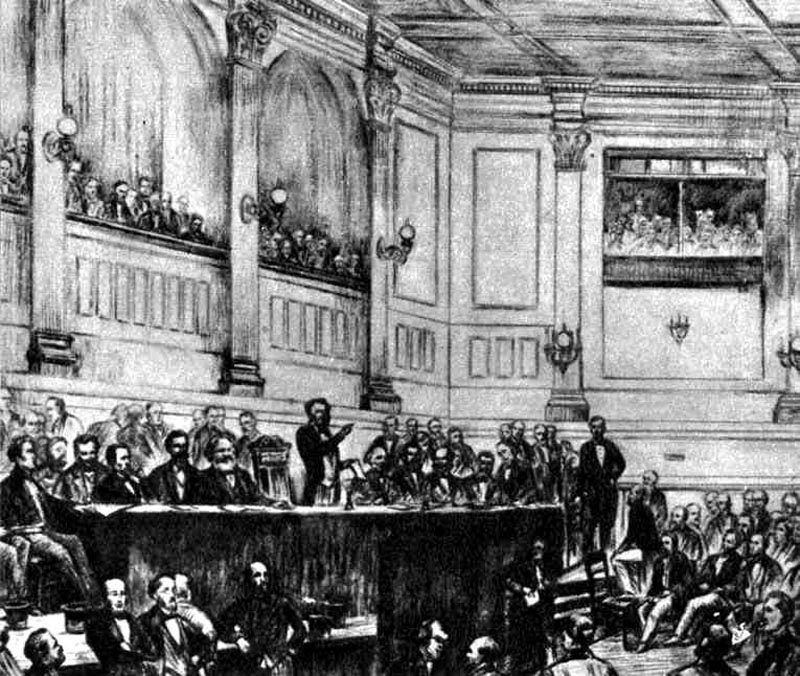Zum historischen Verhältnis zwischen Anarchismus und Marxismus

Zeit: 28.02.-04.04.2022 (6 Termine), immer montags 19:30-22:30 Uhr
Ort: https://us06web.zoom.us/j/87816906025
• vorausgesetzte Texte
+ zusätzlich, empfohlene Texte
Die Texte werden im Voraus gelesen und dann zusammen diskutiert. Neueinsteiger/innen sind herzlich Willkommen. Vorkenntnisse werden keine benötigt.
Empfohlene Vorbereitungs- und Hintergrundliteratur:
+ Chris Cutrone, "On anarchism and Marxism" (2008)
+ Trevor Bark, "Half-time team talk" (response to Cutrone) (2008)
+ Chris Cutrone, "Against dogmatic abstraction" (2010)
+ Edmund Wilson, Der Weg nach Petersburg (1940), Part II. Kapitel 12–16 (von "Marx und Engels wenden sich der Geschichtsschreibung zu” bis "Karl Marx stirbt an seinem Schreibtisch") (1924)
+ James Joll, The Second International 1889-1914 (1966)
1.Woche | 28.02.
• Pierre-Joseph Proudhon, Was ist das Eigentum?, vor allem Kapitel 1, 3 und 4 (1840)
• Karl Marx’ Brief “über P. J. Proudhon” an J. B. v. Schweitzer (1865)
2. Woche | 07.03.
+ Karl Korsch, "Der Marxismus der Ersten Internationale“ (1924)
• Marx, Inauguraladresse der Internationalen Arbeiter-Assoziation (1864)
• Ferdinand Lassalle, ''Offenes Antwortschreiben'' (1863)
• Michael Bakunin, "A Critique of the German Social-Democratic Program" (1870)
• Bakunin, Marxism, Freedom and State (1872)
3. Woche | 14.03.
• Marx, Kritik des Gothaer Programms (1875)
• Marx, "Einleitung zum Programm der französischen Arbeiterpartei" (1880)
• Karl Kautsky, Das Erfurter Programm (1892)
+ Korsch, Einleitung zu Marx, Randglossen zum Programm der deutschen Arbeiterpartei (1922)
4. Woche | 21.03.
• Kautsky, Die soziale Revolution (1902), Teil 1 [in GER (Fraktur) oder ENG] und Teil 2
5. Woche | 28.03.
• Peter Kropotkin, Die Eroberung des Brotes, vor allem Kapitel 3, 11 und 12 (1906)
• Kropotkin, Anarchist Communism (1909)
+ Errico Malatesta Syndicalism and Anarchism (1926)
6. Woche | 04.04.
• Kautsky, Der Weg zur Macht (1909)

